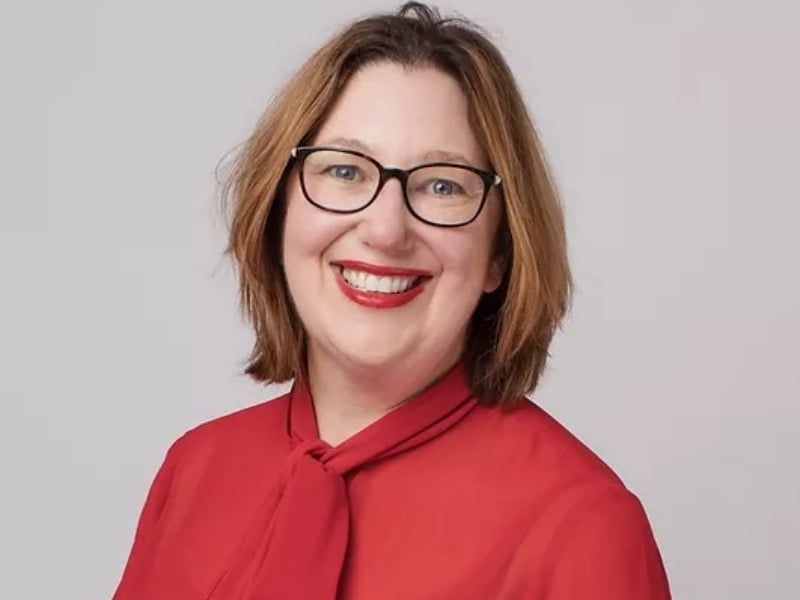Our Prime Minister Scott Morrison has told dozens of world leaders at the UN Climate Change Conference (COP26) to bet on scientists as the people who will lead the way in finding a solution to combat climate change.
“It will be our scientists, our technologists, our engineers, our entrepreneurs, our industrialists and our financiers that will actually chart the path to net zero and it is up to us as leaders of government to back them in,” he said.
The PM said it was the “Australian way” to bet on the experts. I couldn’t agree more. In fact, we should double down on the bet – and back our next generation of scientists to the hilt to unleash breakthrough innovations to vastly improve the lives of Australians across all areas of life.

It’s Melbourne Cup week so when we talk about betting on our scientists, form and track record are apt talking points. And the form line and track record for Cooperative Research Centre (CRC) collaboration with industry and universities are impressive.
The CRC Program has been a significant and successful element of the Australian innovation ecosystem for 30 years. In fact, we celebrated the tricennial at the Collaborate Innovate Conference just two weeks ago (there will also be a second, in-person instalment at Parliament House in Canberra in March 2022).
No other scheme has seen industry and universities collaborate for as long or on the scale that it has, and the long-run impact of those collaborative relationships are profound. For example, the technology underpinning the Cochlear ear implant, and the advanced composite materials used in the Boeing 787 Dreamliner.
CRCs bring together the knowledge of private companies, universities and other research institutes to bring Australian expertise to solve problems ranging from living with autism, emergency management of bushfire and natural hazards, to food agility and creating a sustainable food future through to improving Australia’s cybersecurity.
For every dollar invested by government in the CRC program, some three times the value is returned, generating between 1991 and 2017 more than $14 billion in direct economic benefits to the nation from CRC-produced technologies, products and processes. In any language, this is winning form.
When we talk about betting on science, we need to look at talent pipelines and – like Gai Waterhouse does so expertly – nurture our thoroughbred scientific talent diligently and be prepared to back them in the biggest events when they are ready.
The next generation talent is already here, ready and primed. In fact, they are right under our noses – hiding in plain sight as it were.
I know this because Cooperative Research Australia and colleagues from CQ University sifted through applications for this year’s Early Career Researchers Prize (ECR Prize), which ultimately went to Dylan Ashton, a PhD candidate at the University of Sydney.
He has been doing stellar work in an Innovative Manufacturing CRC project that is developing kangaroo tendon xenografts as an alternative graft source that are safe for humans.
But what struck me was the quality of the ECR Prize submissions.
For example, finalist Indrani Mukherjee from the University of Tasmania whose research uses high resolution microanalytical imaging techniques to clearly differentiate biological vs non-biological signatures in rocks that are billions of years old.
The techniques she is pioneering could even be used for rocks beyond Earth. Indrani is a special talent whose work has already been published in Nature, arguably the world’s most prestigious academic journal.
And there’s Dr Chloe Lai, a Postdoctoral Research Fellow at University of Southern Queensland’s Centre for Sustainable Agricultural Systems, who is working on a project with the Soil CRC to figure out how to better measure and model phosphorous in soil.
Her work means agricultural producers can make better choices about managing food production, which translates to environmental good and consumer good.
And the humanities play a big role in creating that future. Mathew Alexanderson, a PhD Candidate at Southern Cross University is undertaking research as part of the Soil CRC explores regenerative agriculture.
This work is contributing to our understanding of this alternative agricultural system, and improving knowledge on farmer behaviours, aspirations and motivations, and their perceptions of existing and proposed R&D initiatives. He is doing the work that helps people to work better together.
Dylan, Indrani, Chloe and Mathew are just the tip of the iceberg of a vast untapped resource of scientific talent. In fact, CRCs host a significant portion of PhD candidates undertaking industry-led research in Australia, with around 400 current students and more than 4000 alumni.
This group of industry-based PhDs are well placed to drive Australian innovation. These are the people who advance Australian capacity for research commercialisation.
They are the people who industry calls upon to create new solutions to old problems, see and fix new problems, and translate deep knowledge into new products, services and ideas that advance all Australians. The ideas this diverse group of problem-solvers come up with are mind-blowing.
So when our political leaders talk about betting on scientists, the smart money should be on our emerging scientists who, through CRC collaborative research projects, are already experts in talking the language of research and the language of industry.
They are ready and waiting. Now is the time to back their talent for innovation – and unique skillset to move between the scientific world and industry to turn science fiction into reality.
Fixing busted human knees with kangaroo tendon? Who could imagine such a thing? Well, we know who can – industry-based PhDs. Let’s bet on them, and bet big.
Jane O’Dwyer is the CEO of Cooperative Research Australia (CRA), which strengthens and promotes the transformative potential of collaborative, industry-led research through knowledge exchange, professional development and advocacy.
Do you know more? Contact James Riley via Email.
